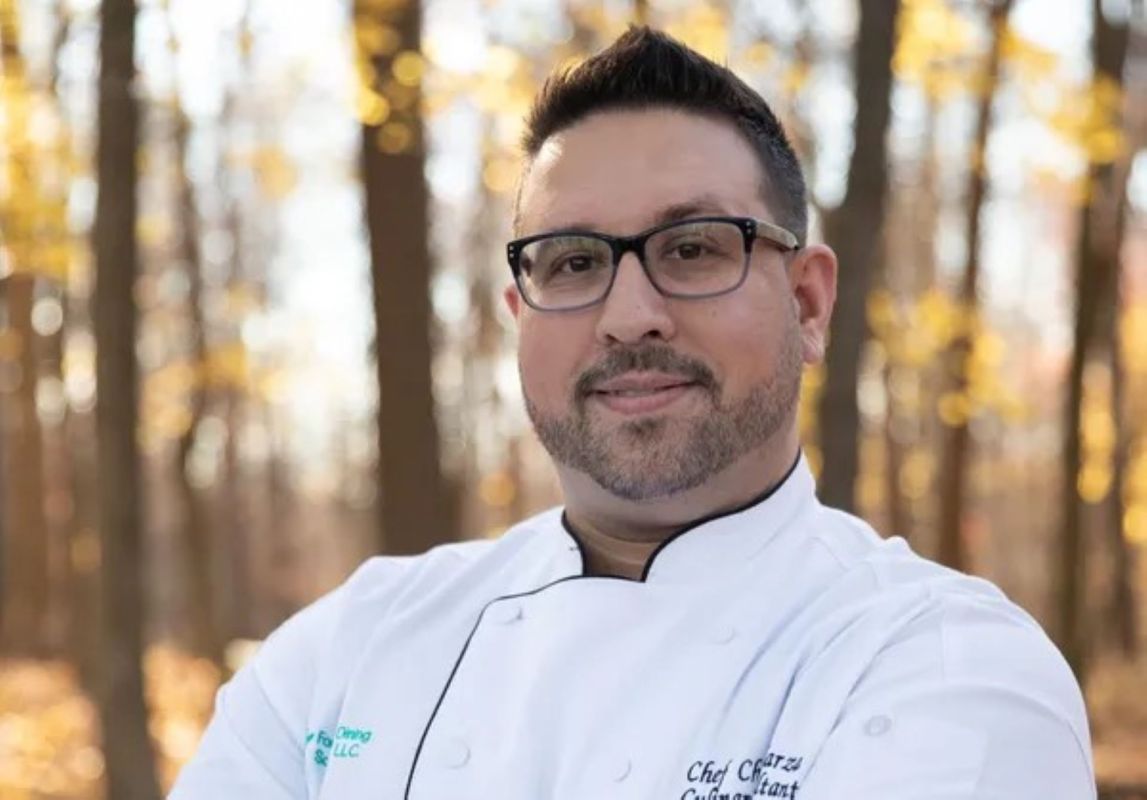For years, Chef Chris Galarza has been an advocate for induction stoves in commercial kitchens. In the last year, he has made incredible strides forward in that mission, releasing a whole new set of educational materials and creating new industry standards to bring the Green Industrial Revolution into the kitchen.
"The truth is that every international culinary competition in the world is all-electric," Galarza told The Cool Down in a recent interview. "There's a lot of chefs around the world, like Renee Redzepi at Noma, number one restaurant in the world, all-electric. There's a world-renowned master chef here in the U.S., in Atlanta, that has a restaurant, all-electric and ventless."
Electric induction stoves are the gold standard from an energy and environmental standpoint because they are extremely efficient, produce none of the air pollution associated with burning fuel, and can be powered with clean energy. However, as Galarza pointed out, environmental reasons aren't the only ones to switch to induction.
Normally, cleaning a commercial stove is a long process, averaging half an hour, depending on the type of stove. Chefs must remove grates and burners, scrub and degrease each part, and even clean the insides of some components with a toothpick — and it has to be done once per shift for every stove used.
An induction stove, on the other hand, can be cleaned in 60 seconds.
"Imagine you're paying your staff $20 an hour, and you're saving 30 minutes [from each staffer] per shift, that's a savings of $200 a day — so that's 20 staff times $10 for the half-hour saved," Galarza said. "$1,400 a week, which then is about $6,000 a month, which then is about $18,000 per quarter and $72,000 annually … So the savings adds up."
He also pointed out that this $72,000 difference was for labor costs alone and that restaurants can save even more on water and degreaser.
"And then there's also food production. You can cook 38.6 pounds of food per hour with a gas range, when an induction range can cook 70.9 pounds of food per hour," he added — a major advantage in an industry that is so often understaffed.
Galarza said his favorite example of how eco-friendly equipment saves money is the kitchen's airflow system. During his time in one of America's first all-electric kitchens at Chatham University's Eden Hall, his newly installed demand-controlled kitchen ventilation came with a price tag of $300,000 (compared to $100,000 for a standard airflow system). But he said it paid for the difference in less than a year, thanks to factors like 70% energy savings applied to a fairly large college facility, as detailed by the Consortium for Energy Efficiency.
"That was probably the best decision that we could have made," he said.
The benefits of upgrades like these, especially the reduced labor costs, are laid out in Galarza's book, Understanding the Green Industrial Revolution, released in December 2023.
To help chefs identify the equipment they need and remove any guesswork, Galarza has also developed EcoChef, a rating system for electric kitchens designed to guide chefs, owners, and policy-makers through the transition to green technology in the kitchen, including induction stoves.
The EcoChef certification system includes categories like energy efficiency, air quality, waste, and comfort. In each category, kitchens receive points for a number of steps toward sustainability, for a total of 80 possible points. Depending on how many points a kitchen earns, it can receive levels of certification from Bronze (40 points) to Platinum (70 points).
"It doesn't have to feel daunting," said Galarza. "It doesn't have to feel like they're redoing their whole restaurant. In fact, we don't even require 100% electrification. We feel like it's hard for a lot of people to say, 'Let's buy all-new equipment!' But if they say, 'Maybe we can make some smart changes and change 50% of it over,' cool."
Galarza sees these standards as the future of the hospitality industry.
"This is just the best way to do this," he said. "This is happening whether you like it or not, so do you want to be dragged kicking and screaming or do you want to help shape where this goes?"
Leaders in other industries, like architecture, have found the same — that eco-friendly methods often just work better, too. You can see many examples in the TCD Guide.
Galarza also hopes that others will join the cause of changing the way restaurants do things. "The point of EcoChef now, which would be the magnum opus, if you will, is that this doesn't have to end with me."
Join our free newsletter for cool news and actionable info that makes it easy to help yourself while helping the planet.









